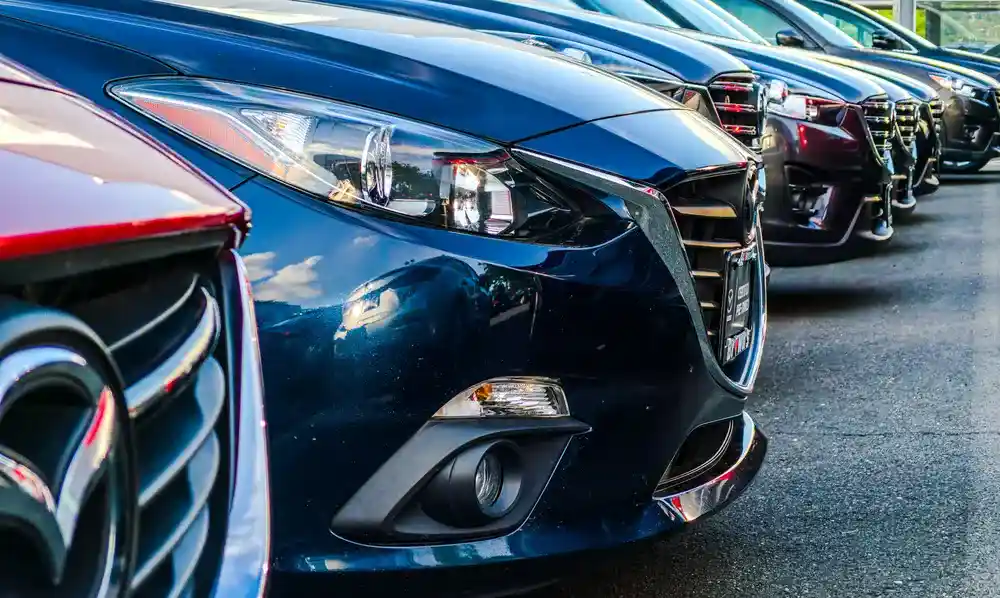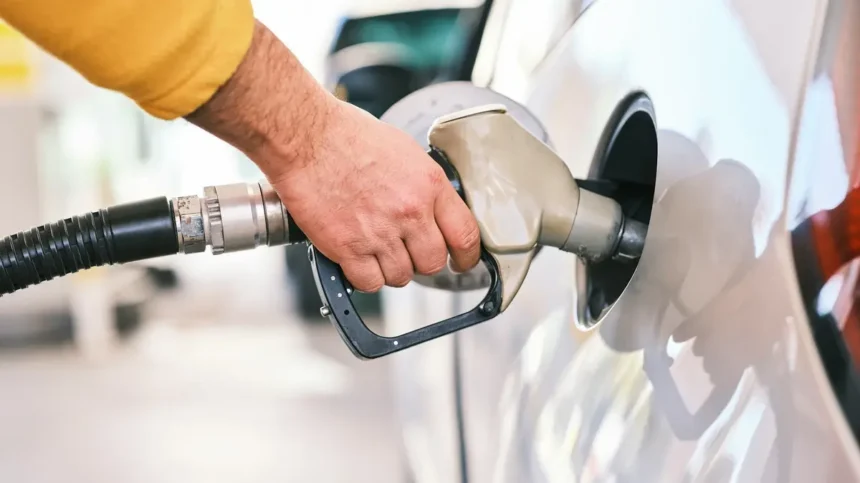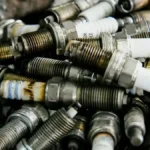Driving is an essential part of daily life for many Americans, and with fuel prices constantly fluctuating, improving your car’s fuel efficiency has never been more important. Whether you’re commuting to work, running errands, or hitting the open road, maximizing your fuel efficiency not only saves you money but also helps reduce your carbon footprint. By adopting smarter driving habits and performing regular car maintenance, you can significantly increase your car’s fuel efficiency, keeping both your wallet and the environment in mind.
This comprehensive guide will take you through five essential tips to help you improve your car’s fuel efficiency, so you can make the most out of every gallon.
Five Essential Tips to Help you Improve your Car’s Fuel Efficiency

1. Drive Smoothly and Avoid Rapid Acceleration
One of the easiest ways to improve your car’s fuel efficiency is by driving more smoothly. Sudden acceleration, frequent braking, and aggressive driving habits can lead to unnecessary fuel consumption. Your car uses more fuel when accelerating quickly, especially at higher speeds.
- Tip for Better Fuel Efficiency: Gradually accelerate and decelerate, especially in city driving. Maintain a steady speed on highways, using cruise control when appropriate to avoid constant speed fluctuations.
- The Fuel Impact: According to the U.S. Department of Energy, aggressive driving can lower your gas mileage by up to 40% in stop-and-go traffic and up to 30% at highway speeds.
| Driving Behavior | Potential Fuel Savings |
|---|---|
| Smooth Acceleration | Up to 40% |
| Steady Speed (Cruise Control) | 7-14% |
| Avoid Hard Braking | 10-15% |
Read More: How to Check Your Car’s Coolant Level
2. Keep Your Tires Properly Inflated
Underinflated tires are one of the most common causes of poor fuel efficiency. When tires are not properly inflated, they create more rolling resistance, which forces your engine to work harder and burn more fuel.
- How to Maintain Tire Pressure: Check your tire pressure at least once a month or before long road trips using a tire pressure gauge. Make sure the tires are inflated to the manufacturer’s recommended level, which can typically be found in your owner’s manual or on the tire information label inside the driver’s door.
- Fuel Efficiency Impact: Keeping your tires properly inflated can improve fuel efficiency by up to 3%. In addition, it prolongs tire life and ensures better handling on the road.
Note: It’s important not to overinflate your tires, as this can lead to uneven tire wear and a rougher ride.
Tire Pressure Recommendations for Fuel Efficiency:
| Tire Status | Fuel Efficiency Impact |
|---|---|
| Properly Inflated Tires | Up to 3% improvement |
| Underinflated Tires | 0.2% decrease per 1 psi drop |
| Overinflated Tires | Can lead to uneven wear and reduced comfort |
3. Reduce Excess Weight and Remove Roof Racks
Extra weight in your car makes the engine work harder, which in turn decreases fuel efficiency. This applies to both carrying heavy loads in the car’s trunk and using roof racks or other external cargo carriers that add wind resistance.
- How to Lighten Your Load: Clean out unnecessary items from your trunk or backseat and avoid carrying heavy items unless absolutely necessary. Additionally, if you have a roof rack or cargo box that you’re not using, it’s best to remove it to reduce drag.
- Fuel Savings: Removing excess weight can improve fuel efficiency by around 1-2% for every 100 pounds of weight eliminated. If you frequently drive with a roof rack, removing it when not in use can improve fuel efficiency by up to 5%.
| Weight Reduction | Fuel Efficiency Gain |
|---|---|
| Remove 100 lbs of weight | 1-2% |
| Remove roof rack (if not in use) | Up to 5% |
4. Perform Regular Car Maintenance
Keeping up with regular car maintenance is essential for optimal fuel efficiency. A well-maintained car runs more efficiently and uses less fuel, while neglected car components like old spark plugs, dirty air filters, and low-quality engine oil can hurt your car’s performance and increase fuel consumption.
- Engine Oil: Use the recommended oil grade for your car. Using the wrong viscosity oil can increase engine friction and reduce fuel efficiency.
- Air Filters: Replacing a dirty air filter improves fuel efficiency and engine performance. A clogged air filter can reduce fuel economy by up to 10%.
- Spark Plugs: Worn-out spark plugs can cause incomplete combustion, wasting fuel. Make sure to replace them according to your vehicle’s service schedule.
| Car Maintenance Task | Fuel Efficiency Impact |
|---|---|
| Using correct engine oil | 1-2% |
| Replacing air filter | Up to 10% improvement |
| Replacing spark plugs | Prevents fuel waste |
5. Avoid Idling and Turn Off Your Engine When Parked
Idling is one of the most significant causes of wasted fuel, especially when sitting in traffic or waiting in the car for extended periods. While modern engines no longer need to warm up, many drivers still let their cars idle unnecessarily, which consumes fuel without getting you anywhere.
- Fuel Efficiency Tip: If you anticipate being stopped for more than a minute, it’s better to turn off your engine. For example, when waiting for someone or at a long stoplight, turning off the engine can save fuel.
- Fuel Savings: Reducing unnecessary idling can improve fuel efficiency by up to 19%, depending on how frequently you idle.
| Idling Duration | Fuel Consumption |
|---|---|
| 1 minute of idling | Wastes about 0.2 ounces of fuel |
| Turning off engine (at stops longer than 1 minute) | Up to 19% fuel savings |
Conclusion
Improving your car’s fuel efficiency doesn’t have to be complicated. By following these five simple yet effective tips, you can reduce fuel consumption, save money at the pump, and contribute to a cleaner environment. Whether it’s by maintaining smooth driving habits, keeping your tires properly inflated, reducing extra weight, performing regular car maintenance, or avoiding unnecessary idling, small changes can make a big difference. As fuel prices continue to fluctuate, now is the perfect time to start adopting these fuel-saving habits and making the most of every gallon of gas.
By integrating these fuel efficiency tips into your routine, not only will you enjoy smoother and more cost-effective driving, but you’ll also contribute to reducing your carbon footprint, making the roads a little greener for everyone.








